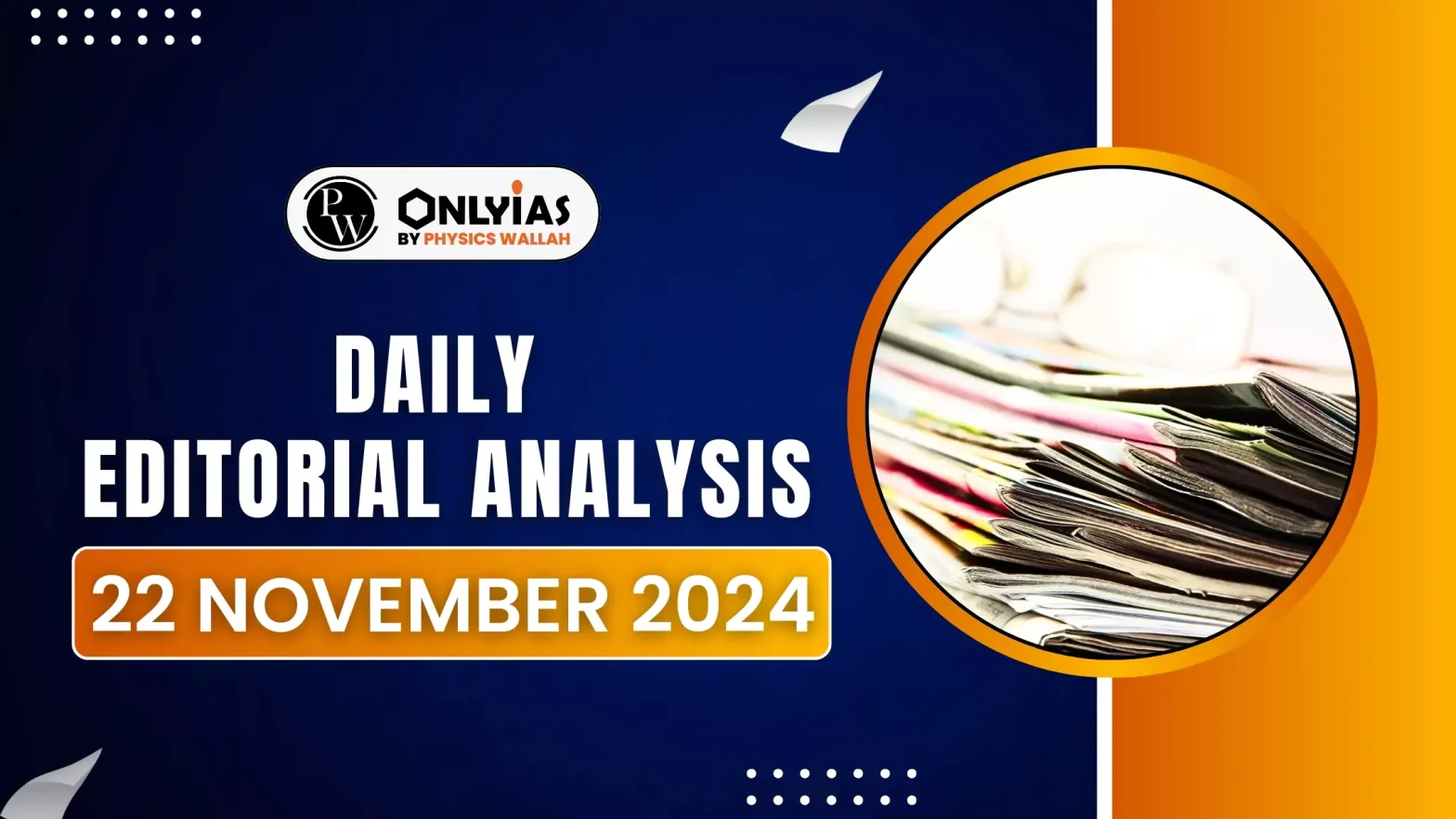The role of social media in democracy is debated, with its ability to empower citizens countered by concerns over misinformation, hate speech, and manipulation. Recently, The Guardian labelled Twitter (X) as a “toxic media platform” under Elon Musk’s ownership.
Key issues associated with the Impact of Social Media in democracy
- Political Bias and Discourse Manipulation: For instance, Elon Musk’s control has allowed the prioritization of his posts and specific narratives through algorithmic adjustments, shaping public discourse and potentially skewing democratic debates.
- Centralized Control and Government Censorship: The monopolistic power of a few tech giants facilitates easier government censorship.
- Platforms like X often align with government demands, restricting the free flow of diverse opinions and stifling dissent.
Enroll now for UPSC Online Course
- Insufficient Moderation Infrastructure
- Removal of Trust and Safety Teams: X’s decision to eliminate teams responsible for addressing harmful content has led to unchecked hate speech, misinformation, and dangerous narratives.
- Underinvestment in Localization: Platforms like Facebook and WhatsApp lack adequate local language moderators, especially in linguistically diverse regions like India.
- For example, during the Sri Lankan riots, moderation was outsourced to an office in India, leading to delays and contextual misinterpretations.
- The absence of region-specific moderation exacerbates issues such as “dog whistling,” where coded language incites violence or hatred.
- Virality of Fake News: Apps like WhatsApp amplify the rapid spread of misinformation, leveraging features like large group messaging. This unchecked virality has significant consequences in shaping public opinion, often without accountability or fact-checking mechanisms.
- Algorithmic Manipulation: Algorithms on platforms like X prioritize content that aligns with the owner’s interests or specific narratives.
- This not only influences user perception but also undermines the democratic principle of impartial access to information.
| Note:
While social media presents challenges to democracy, it is not entirely negative. For example:
- In recent conflicts like the Palestinian crisis, social media has enabled real-time coverage and allowed people worldwide to witness the atrocities, spreading awareness that was harder to achieve in the past.
- However, the Iraq War (2003) saw significantly higher casualties, but at the time, social media was not as widespread.
|
The Role of Social Media in Democracy
Positive Effects
- Voice to the People: For instance, the Anna Hazare Movement effectively mobilized public support for anti-corruption reforms, enabling direct communication of public demands to the government.
- Rapid Information Sharing: Platforms facilitate real-time updates, especially in crises.
- During COVID-19, social media disseminated critical information on oxygen supplies and hospital resources, helping individuals respond swiftly to emergencies.
- Community Mobilization: Social media fosters grassroots organization during disasters.
- For example, during the Chennai floods, the hashtag #ChennaiRains coordinated relief efforts, mobilizing over 25,000 volunteers to support affected communities.
- Enhanced Government Accountability: Viral social media posts often compel authorities to act. For instance, widespread sharing of police misconduct incidents has led to prompt disciplinary actions, ensuring increased accountability and transparency.
Check Out UPSC CSE Books From PW Store
Negative Effects
- Spread of Misinformation: Social media facilitates rapid dissemination of fake news.
- During COVID-19, misinformation about treatments and vaccines caused panic and harmful behaviors due to inadequate moderation.
- Echo Chambers and Polarization: Algorithms create echo chambers, exposing users only to like-minded views, reinforcing biases, and fueling political and ideological polarization, reducing exposure to balanced perspectives.
- Political Manipulation: The Cambridge Analytica scandal highlighted the misuse of personal data for targeted political ads, distorting electoral processes and misleading voters.
- Hate Speech and Violence: Unchecked inflammatory content often incites real-world violence, as seen in riots and communal unrest triggered by social media posts.
- Digital Divide: Limited internet access in rural areas and developing regions exacerbates inequality, restricting access to information and opportunities.
- Mental Health Issues: Excessive exposure to negative content, cyberbullying, and comparisons on social media increase anxiety, depression, and stress, lowering well-being.
- Time Wastage: Prolonged, unproductive scrolling reduces productivity and time for meaningful activities like education or social interaction.
- Foreign Interference: Cases like the 2016 US elections show how foreign entities use social media to spread propaganda, manipulate public opinion, and undermine democratic processes.
Alternatives and Solutions to Address Social Media Issues
Individual Level
- Fact-Checking: Actively engage in fact-checking and verify information before sharing.
- Increased Awareness: Stay informed and critically evaluate content.
- Platform Choices: Opt for platforms like Bluesky, which prioritise ethical management and civil discourse.
- Explore decentralised systems like Mastodon, though they need further user-friendly improvements to increase adoption.
Platform Level
- Transparent Algorithms: Platforms must ensure algorithm transparency to avoid bias and manipulation.
- Quick Action on Violations: Swift enforcement against content violations to maintain trust.
- Local Language Support: Offer moderation and content options in regional languages.
- Better Content Moderation: Invest in human moderators and AI systems to handle diverse languages and cultural nuances.
- Policies on Hate Speech: Implement uniform, effective policies to combat hate speech and harmful content.
Government Level
- Stronger Laws: Enforce stronger regulations to govern online content and behavior.
- Clear Guidelines: Set clear guidelines for platform accountability.
- Promote Digital Literacy: Strengthen digital literacy programs to help users navigate online content responsibly.
- Fair Access Policies: Ensure equal access to information and prevent monopolistic control over digital spaces.
Enroll now for UPSC Online Classes
Community Level
- Promote Positive Content: Encourage the sharing of constructive and informative content.
- Flag Harmful Content: Empower users to report harmful or false content to ensure safer online environments.
- Better Fact checking units: Establishing better fact-checking units that are politically neutral, transparent, and independent.
Conclusion
Social media, a vital pillar of democracy, empowers citizens and fosters communication, yet poses risks like misinformation and manipulation. To harness its potential, transparent algorithms, effective moderation, and robust regulations are essential for safeguarding democratic values.
![]() 22 Nov 2024
22 Nov 2024
